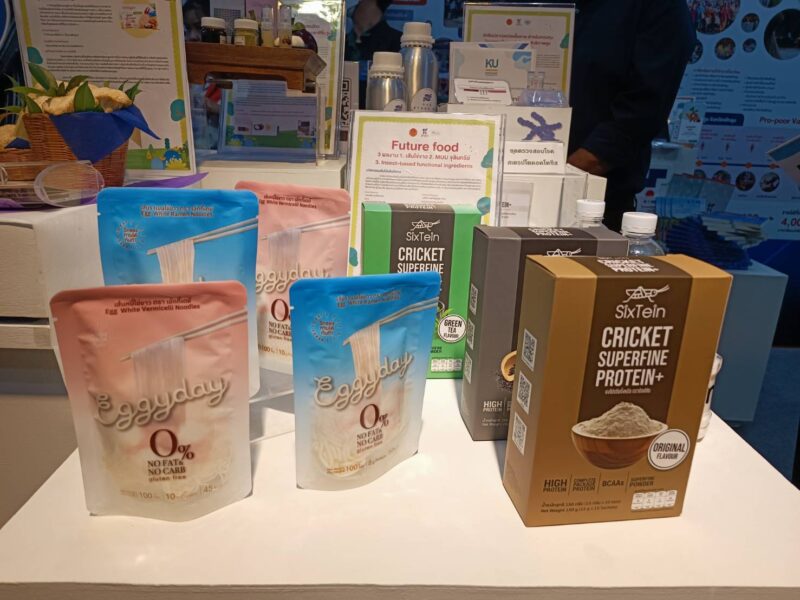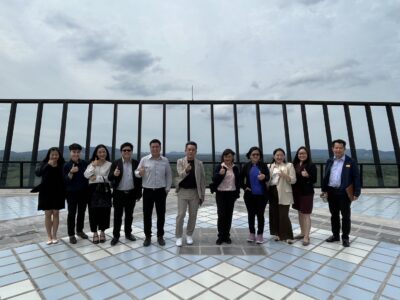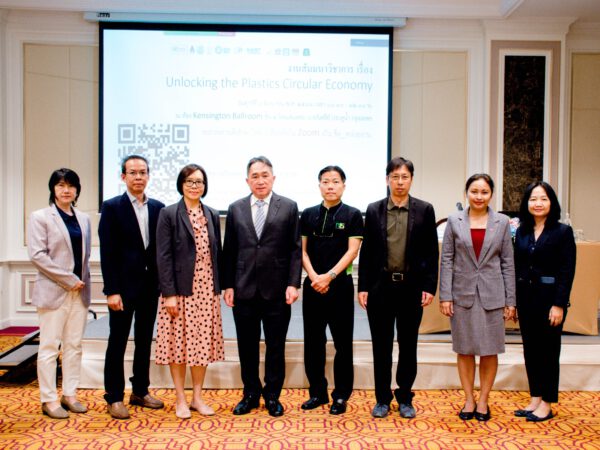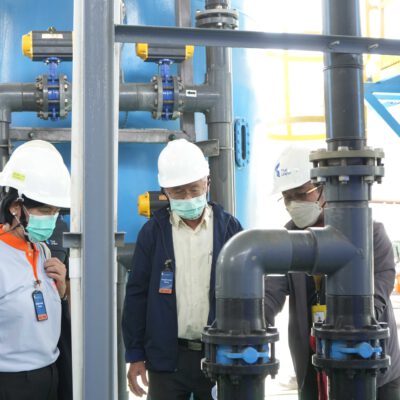The Program Management Unit for Competitiveness (PMUC) and Chiang Mai University (CMU) have introduced the IoT (Internet of Things) dry processing system for value-added products in the northern region, leading Thai watermelon-flavored dried sticky rice into the global market. PMUC, in collaboration with Chiang Mai University, has developed the IoT dry processing system for community enterprise product quality improvement, known as the “SOLAR GREENHOUSE DRYER – SGD PLATFORM.” This initiative is part of the Northern Community Enterprise Enhancement Project. It aims to enhance production efficiency and promote the export of “Watermelon-flavored Sticky Rice.
“On September 18, 2566, Assistant Professor Dr. Wannarat Santiamornrat, the Chairman of the Digital Platform Group at the PMUC, along with Associate Professor Dr. Chatchawal Chaichana, Deputy Dean of the Research, Innovation, and Public Relations at the Faculty of Engineering, Chiang Mai University, visited the project “IoT Platform for Measurements and Calibrations for Quality Improvement of Community Enterprise Products” at the “Khao Tan Sabieng” in Mueang district, Lampang province. They were welcomed by Mr. Surachet Theppinta, the managing director.
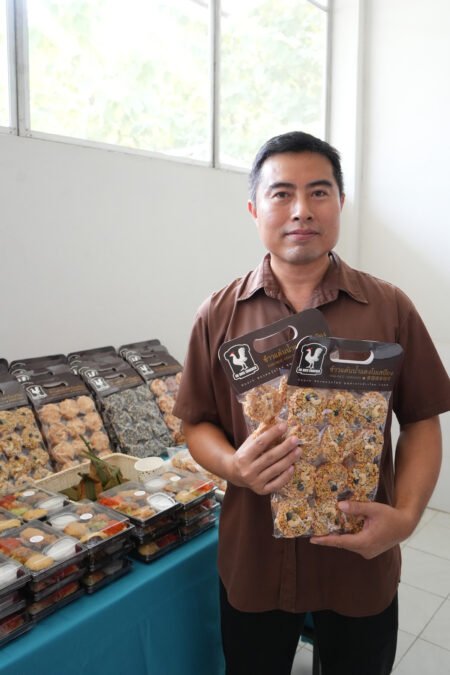
Mr. Surachet provided details about the watermelon-flavored sticky rice business, which has been a family business since 1996. Initially, they sun-dried sticky rice traditionally and sold it in northern local shops. After leaving his engineering job, Mr. Surachet expanded the business by constructing solar-powered drying houses with glass roofs to increase production capacity and find new markets. They now focus on producing dried sheets and distribute them wholesale to further processors. The watermelon-flavored sticky rice uses glutinous rice variety “Koh Kho 6,” which is primarily grown in the northern provinces of Nan, Chiang Rai, Chiang Mai, and Lampang. This glutinous rice variety is suitable for watermelon sticky rice production as it produces beautiful grains after toasting.
“At present, the factory’s production capacity is approximately 300 kilograms per day, averaging 9 tons per month. We employ labor from the Lampang area and primarily use glutinous rice ‘Koh Kho 6’ from the northern region. We plan to expand the drying facility to accommodate both domestic and international customers. Currently, besides selling dried sheets to domestic customers, we have started to introduce new products in convenience stores and consider exporting to countries such as Chile and Israel. After trying the SGD Platform, the factory can improve efficiency, reduce costs, and maintain product quality effectively. The mobile application allows us to control the fans for air circulation, monitor temperature and humidity, and display real-time data, ensuring consistent product quality. Furthermore, it helps us plan production based on recorded data,” Mr. Surachet said.
Associate Professor Dr. Chatchawal explained that the SGD Platform was developed to assist community enterprises in the northern region in processing value-added products, enhancing their competitiveness in the grassroots economy. By increasing the efficiency of the drying process through solar energy drying facilities with glass roofs or polyethylene domes, the SGD Platform includes:
- An IoT system controlling fan operations, air circulation, temperature, humidity measurement inside the drying facility, and data collection on electricity usage inside the drying facility.
- A mobile application for real-time remote control, enabling fan control, emergency temperature and humidity notifications, and real-time data display.
- A database for processing humidity, temperature, and post-drying weight data suitable for production planning. Currently, products undergoing drying processes in the northern region have joined the project and have had their production data improved. These products include dried bananas, Watermelon Sticky Rice, guava, sweet grass, kaffir lime leaves, pandan leaves, ginger, turmeric, longan, lemongrass, and makrut lime peels.
Assistant Professor Dr. Wannarat explained that the PMYC, through the Digital Platform Program, focuses on supporting research and innovation funding, science, and technology development from 2023-2030, Strategy 1, employing digital, artificial intelligence, smart electronics, and robotics technologies to apply in key industries. Additionally, it enhances SMEs’ capabilities and competitiveness, sustaining the grassroots economy, and enabling self-reliance.

